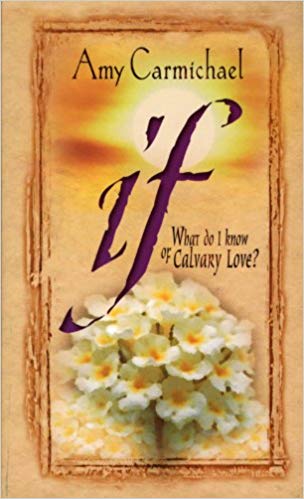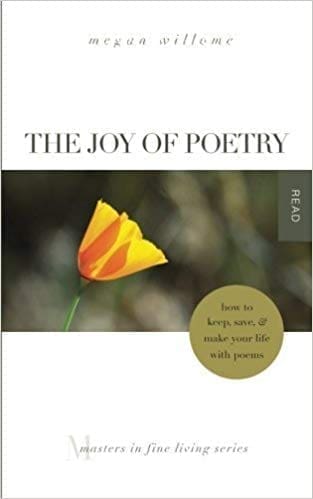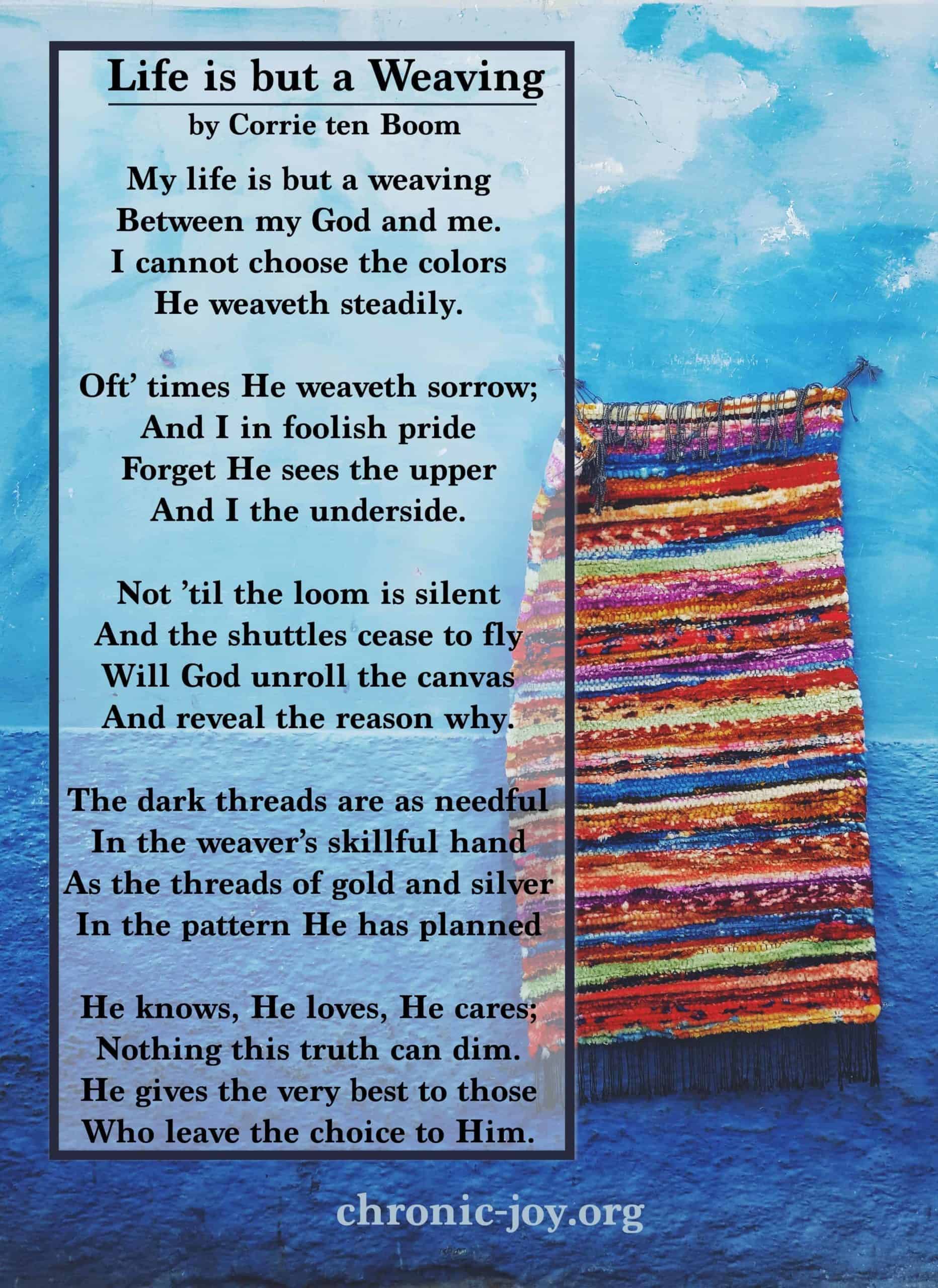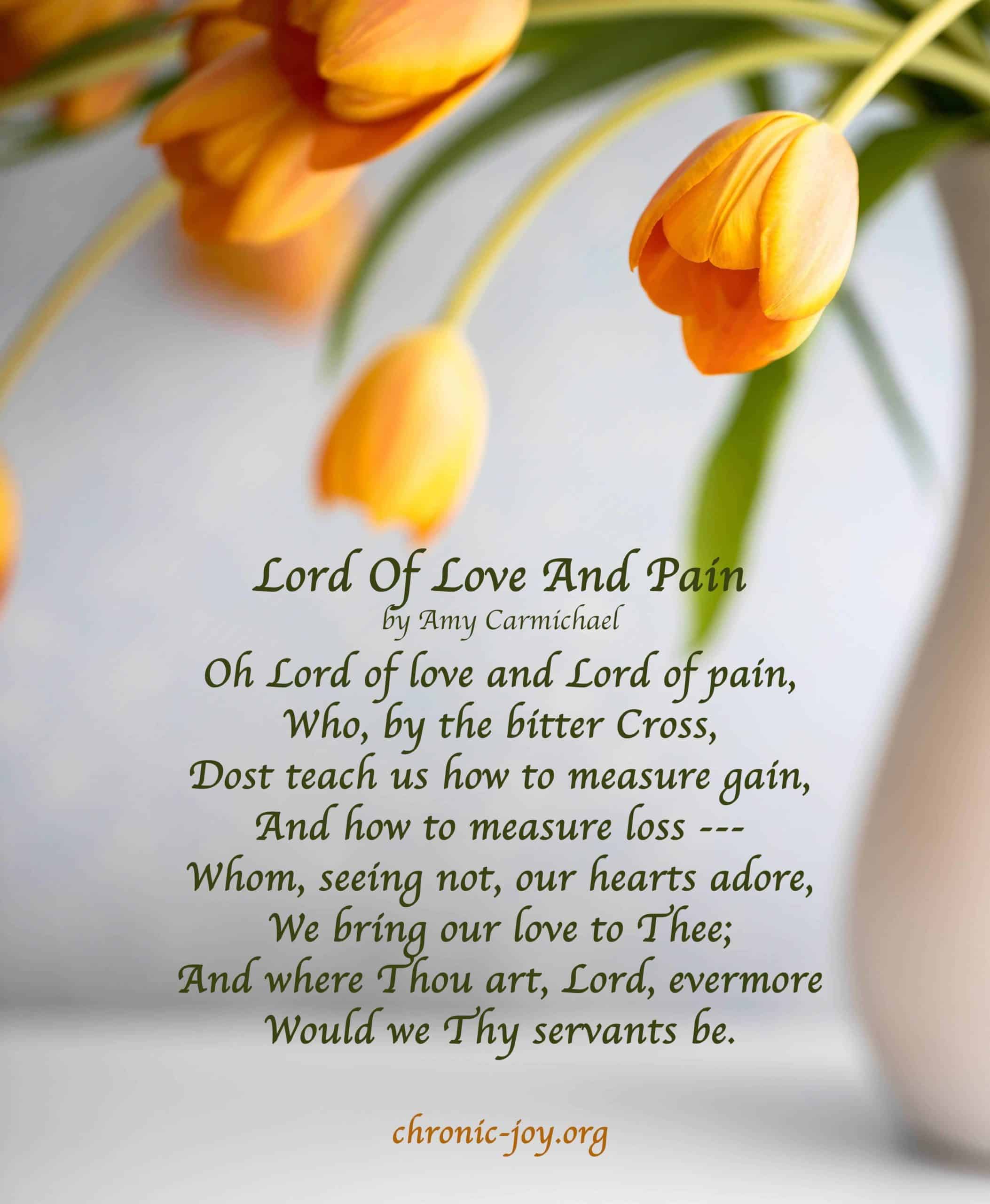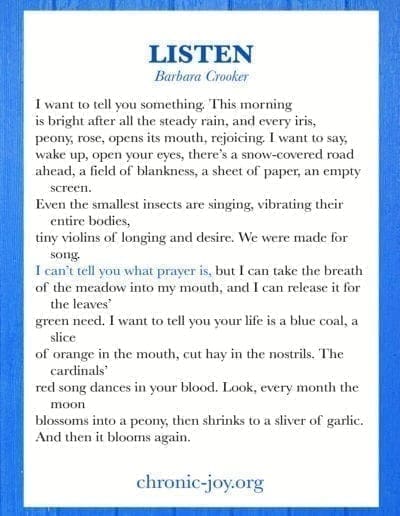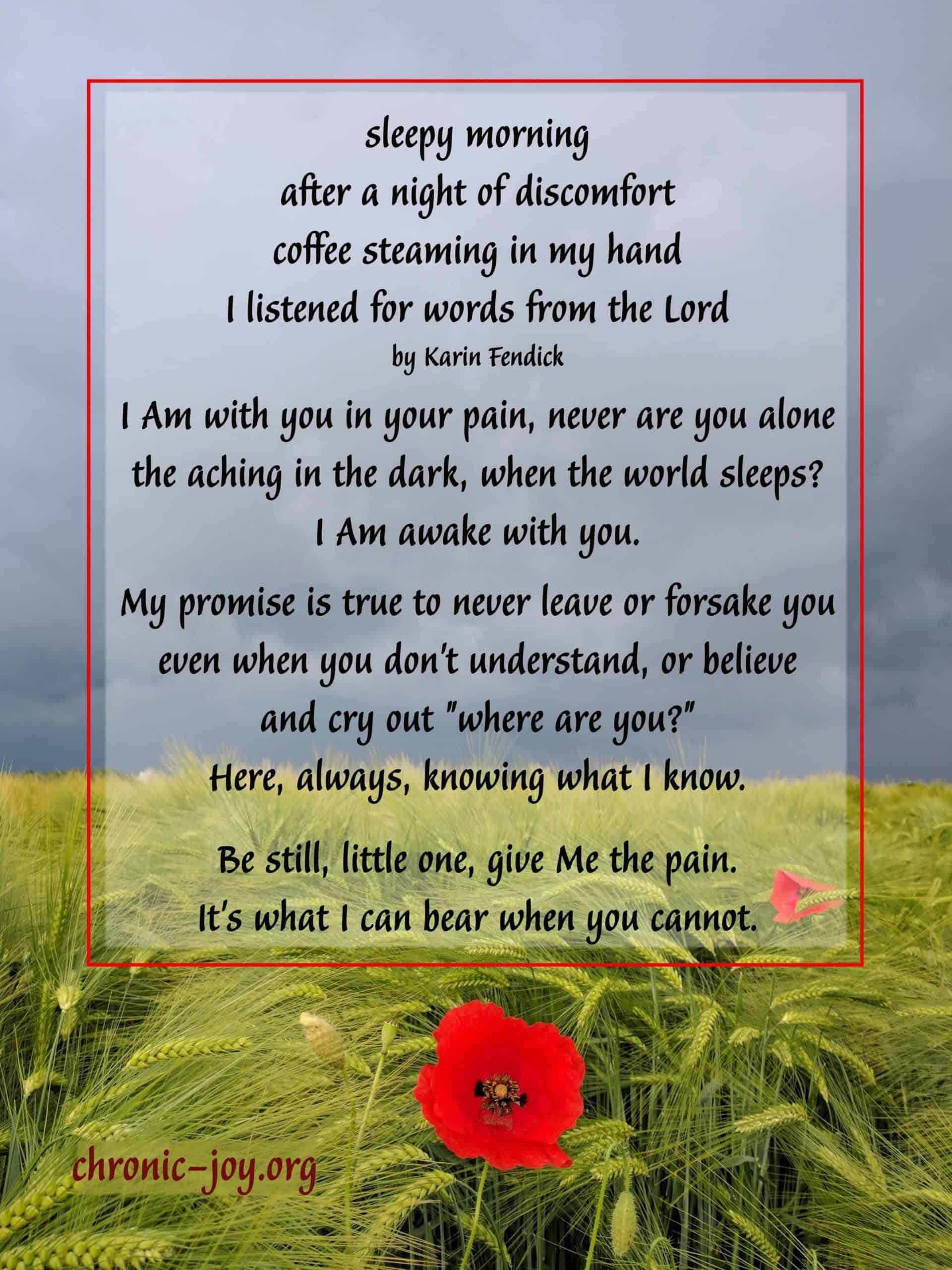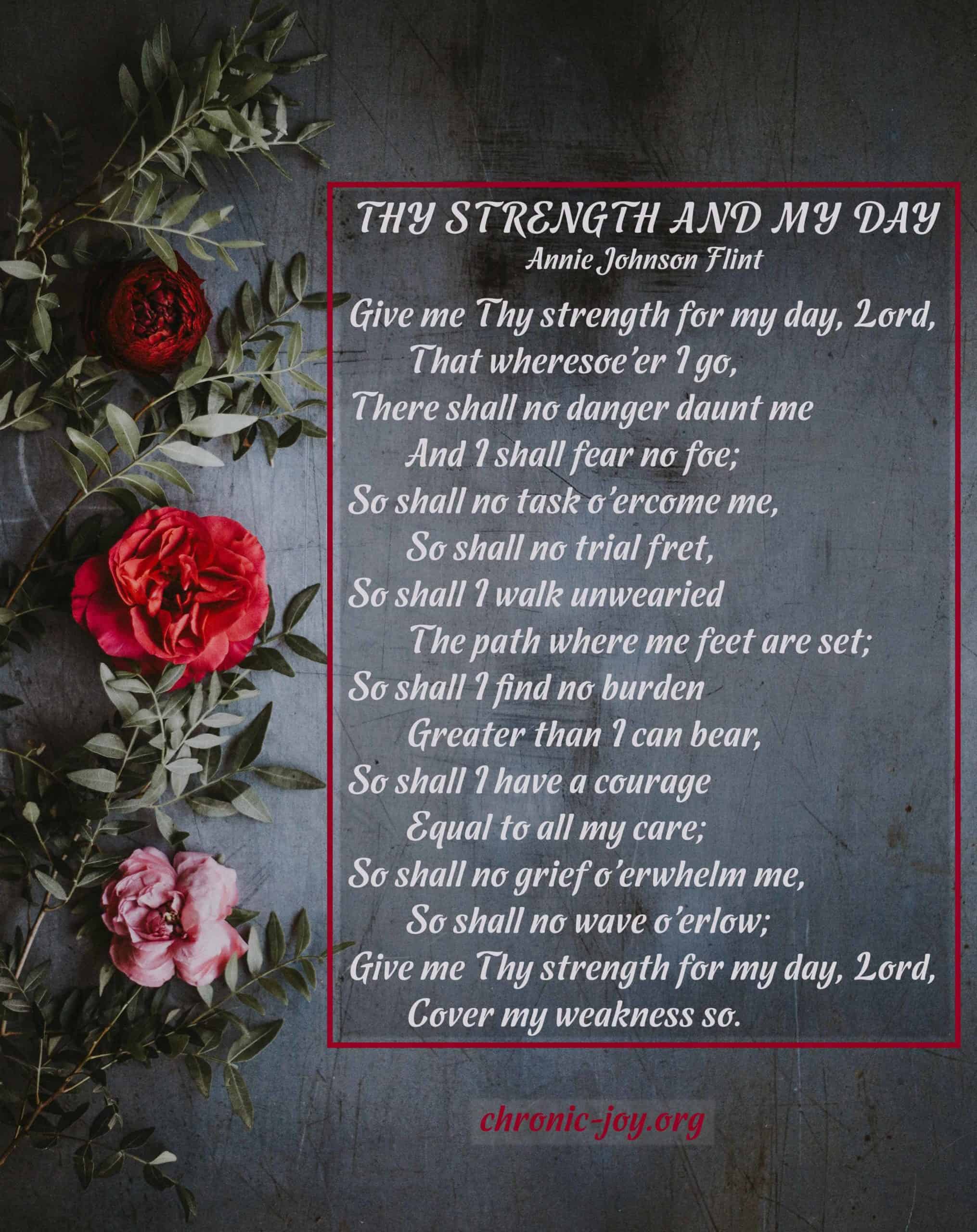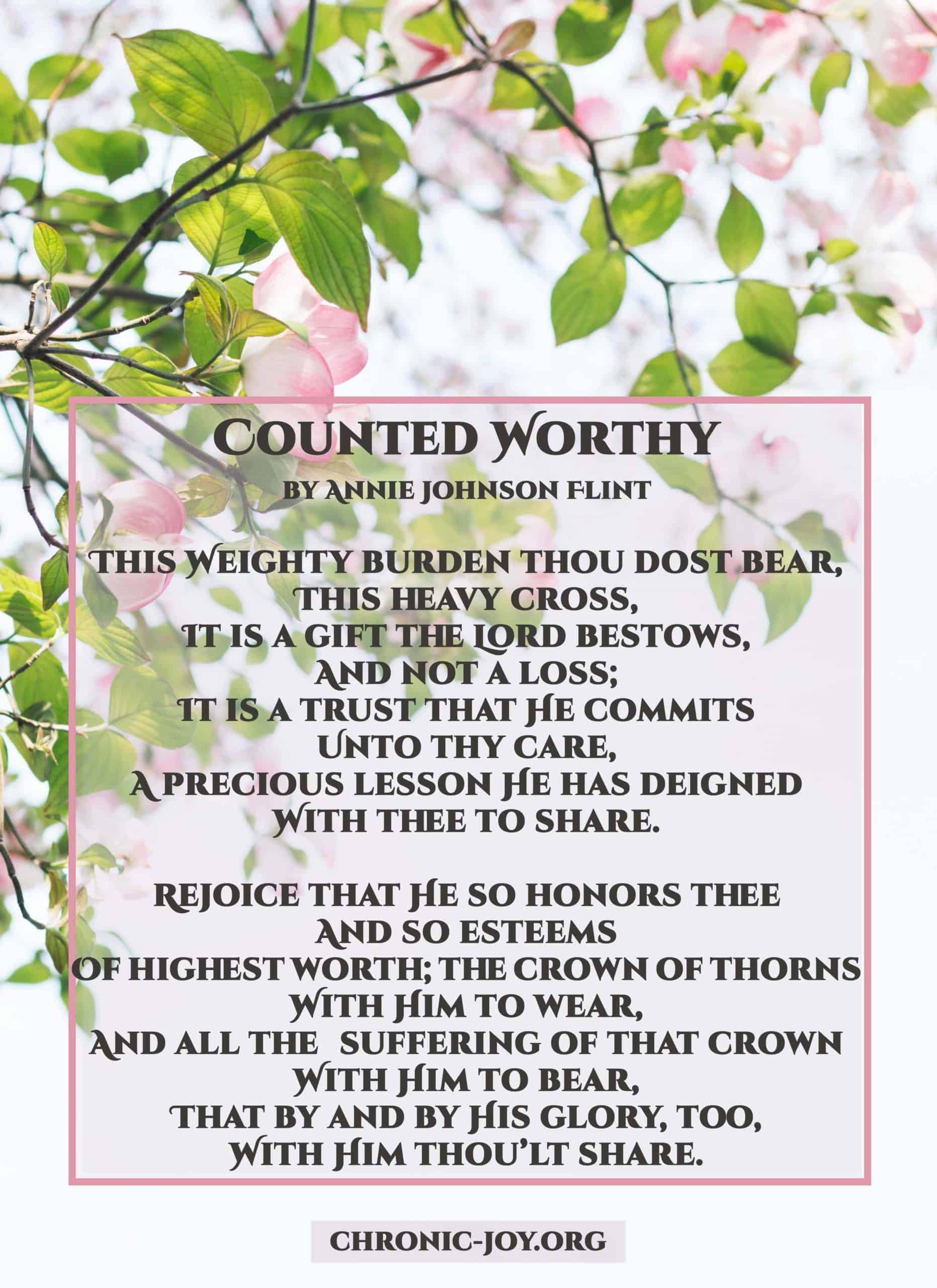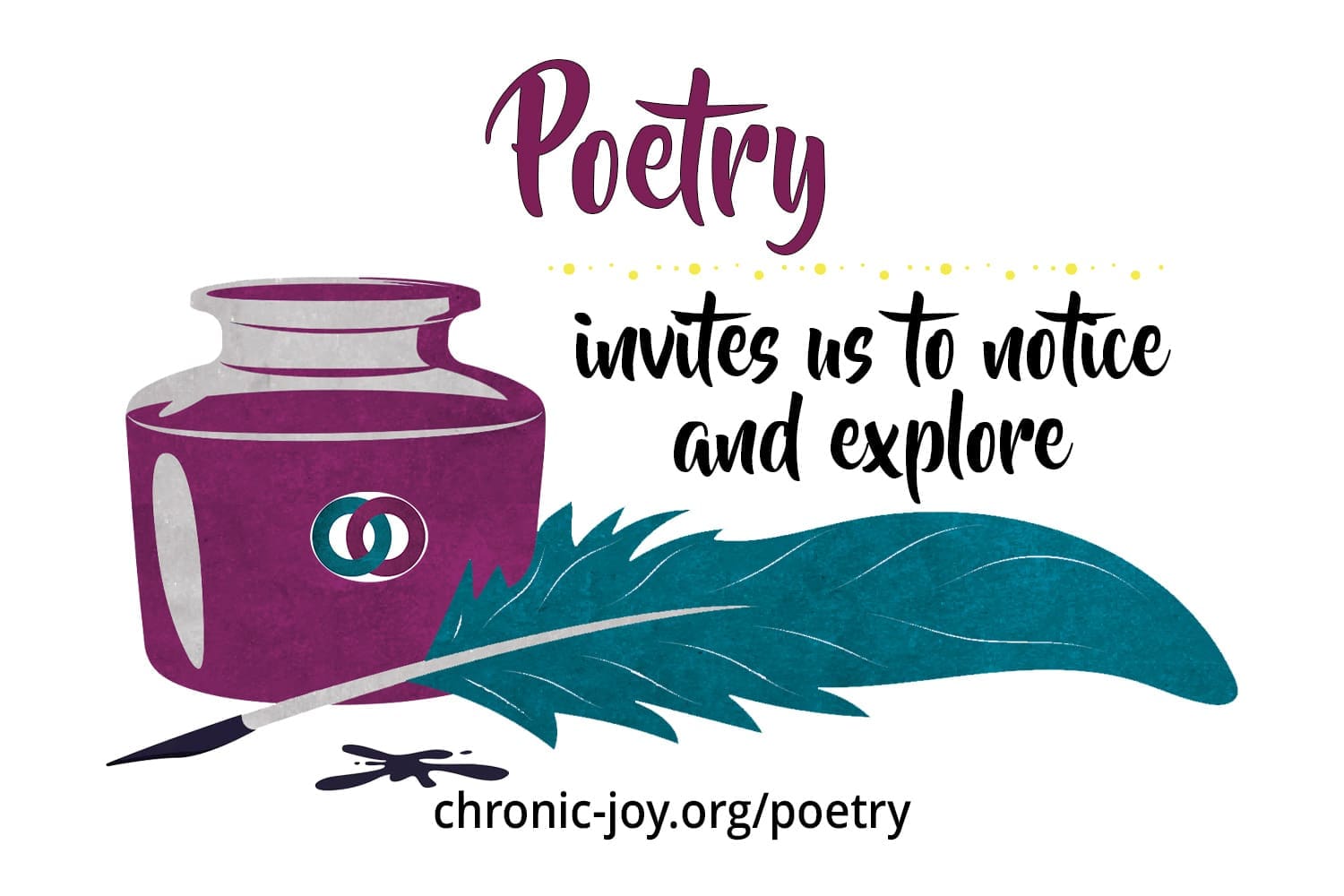
POETRY
Poetry invites us to notice and explore
– the symptoms, confusion, loss, grief, and uncertainty of chronic pain and illness; to collect the moments and small victories; and to discover God’s still small voice in brand new ways.
By nature, poetry is challenging to define. Some of the greats provide a bit of insight:
Poetry is the spontaneous overflow of powerful feelings: it takes its origin from emotion recollected in tranquility. (William Wordsworth)
Poetry is when an emotion has found its thought and the thought has found words. (Robert Frost)
Poetry isn’t a profession, it’s a way of life. It’s an empty basket; you put your life into it and make something out of that. (Mary Oliver)
POETRY INVITES US TO NOTICE
It invites us to notice – the slant of the late afternoon sun; the cool, refreshing water pouring from a tap; crisp sheets fresh from the line; the sweet nuzzle of a puppy; the bubbling laughter of a child; the smell of rich, black coffee; the creak of a wooden stair; the sigh of wind through firs – and to explore – the symptoms, confusion, loss, grief, and uncertainty of chronic pain and illness; to collect the moments, days and small victories; to follow the rhythm and sway of the words as they find their way to the page; to dip our fingers deeper into the wellspring of our faith; and to discover God’s still small voice in brand new ways.
…Poetry gives rhythm to silence, light to darkness. In poetry, we find the magic of metaphor, compactness of expression, use of the five senses, and simplicity or complexity of meaning in a few lines. (Phyllis Klein)
POETRY INVITES US TO LEAN INTO THE QUESTIONS
Illness challenges us with difficult emotions and strings of difficult days. Poetry invites us to lean into the questions we face without needing immediate answers, to pause and breathe and listen, to quietly notice.
Poetry is a way of rescuing the world from oblivion by the practice of attention. It is our attention that honors and gives value to living things … that retrieves them from the obscurity of the general. Poems that galvanize my attention shake me awake. They pass on their attentiveness, their prayerfulness, to me … poetry can make us more fully human, and more fully engaged in this world. (Roger Housden)
POETRY ENGAGES US
It engages us with our senses, creation, and God. It offers us a way to observe, to hold the moments in our hands, turn them over, and look at them from a new perspective. It is another way to process the emotions of chronic illness, to explore, create, and find our voice.
Poetry, as Mary Oliver might say, calls to us like wild geese from an open sky.
FREE PRINTABLES
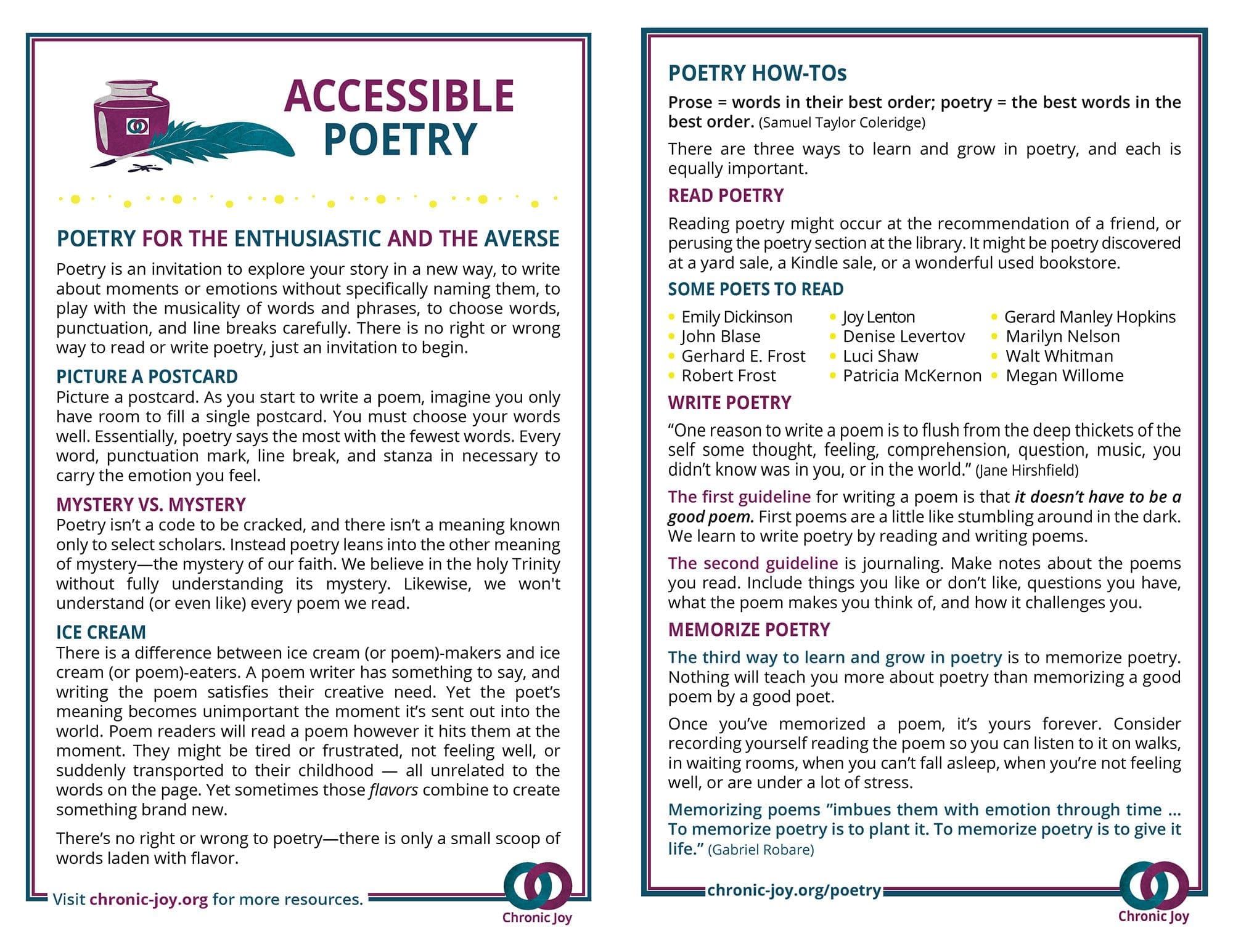
Accessible Poetry
Poetry is an invitation to explore your story in a new way, to write about moments or emotions without specifically naming them, to play with the musicality of words and phrases, to choose words, punctuation, and line breaks carefully. There is no right or wrong way to read or write poetry, just an invitation to begin.
Wounds into Words
Writing about pain is both necessary and difficult. Pain is eased by being moved and writing a poem about pain gets it moving. In Andrea Potos’ poem, we don’t know what her wounds are – only that the cello is speaking to those hurting places, encouraging them to become something beautiful.
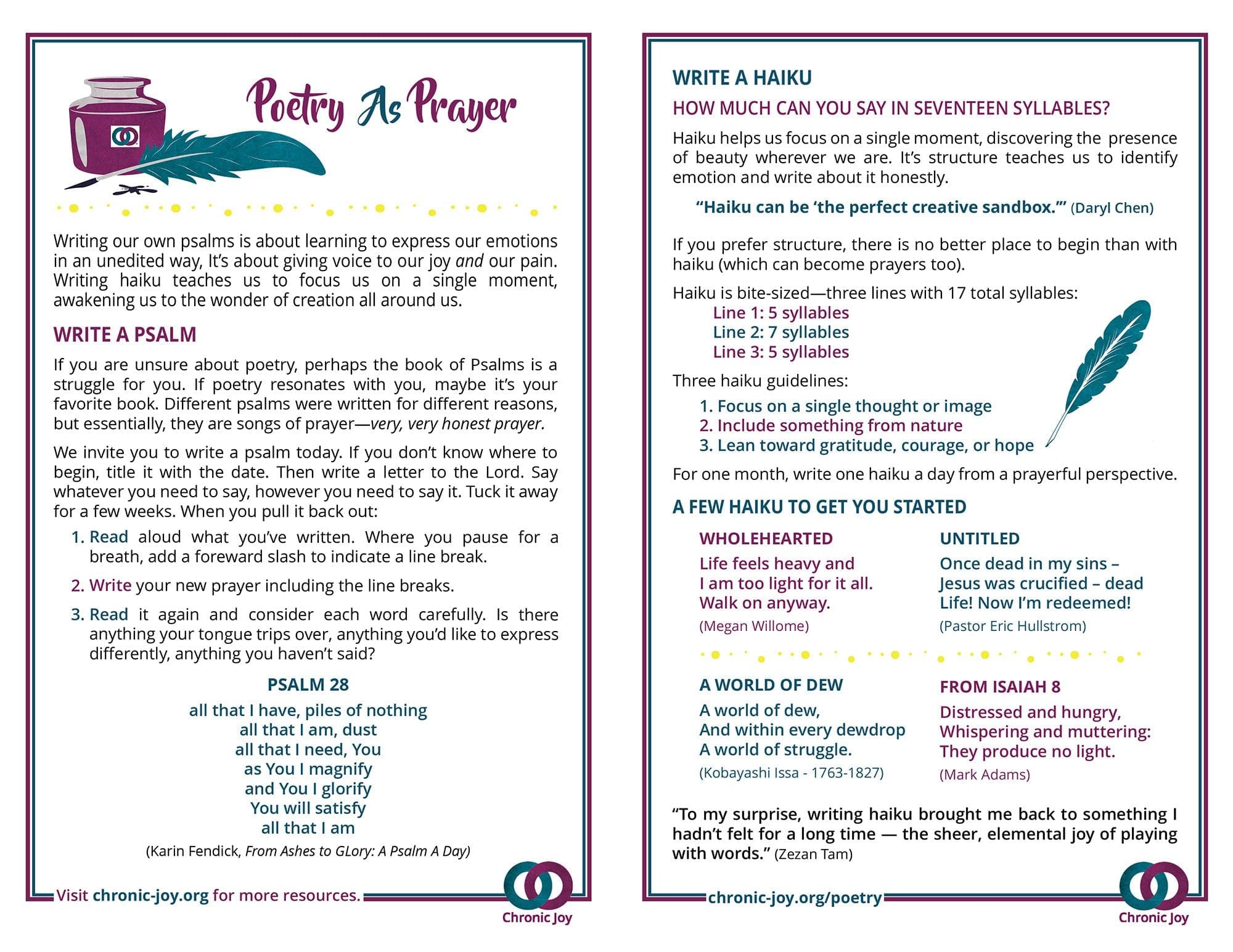
Poetry as Prayer
Writing our own psalms is about learning to express our emotions unedited and giving voice to our joy and pain. Writing haiku teaches us to focus on a single moment, awakening us to the wonder of creation all around us.
Posts
I Can Still Have Joy
A chronic illness can wreak havoc in our lives. We come to a point where we can still choose joy in the midst of chronic illness challenges.
You Cannot Take Me
While we may lose a lot at the hands of a chronic illness, there are still things it cannot take from us. We can even thrive in new ways.
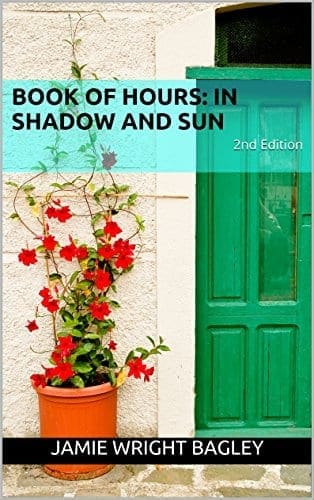
Book of Hours: In Shadow and Sun
Jamie Wright Bagley
For the souls who are crying out for nourishment in the midst of the pressures of daily living, this book is for you. For tired hearts feeling lost, scattered, restless, uninspired, this book is for you. For those who find their hours slipping past too quickly, and long to make their moments count, this book is for you.
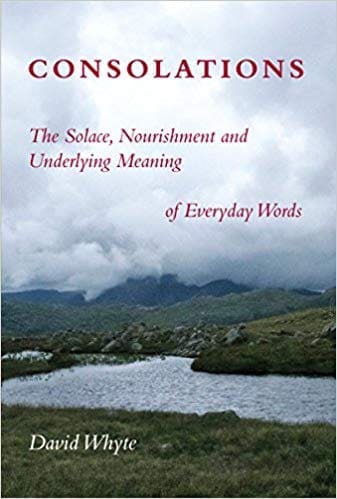
Consolations: The Solace, Nourishment and Underlying Meaning of Everyday Words
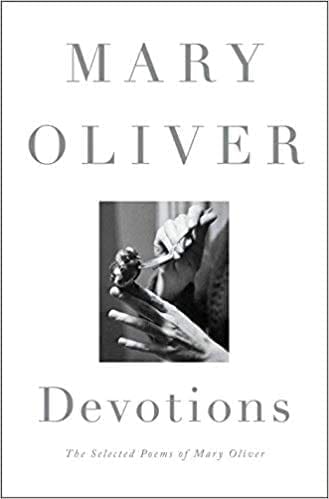
Devotions: The Selected Poems of Mary Oliver
Mary Oliver
Throughout her celebrated career, Mary Oliver has touched countless readers with her brilliantly crafted verse, expounding on her love for the physical world and the powerful bonds between all living things. Identified as “far and away, this country’s best selling poet” by Dwight Garner, she now returns with a stunning and definitive collection of her writing from the last fifty years.
The Joy of Poetry: How to Keep, Save & Make Your Life with Poems
Megan Willome
Part memoir, part humorous and poignant defense of poetry, this is a book that shows you what it is to live a life with poems at your side. Megan’s story is one you won’t want to put down; meanwhile, her uncanny ability to reveal the why’s and how’s of poetry keeps calling—to even the biggest poetry doubter. If you already enjoy poetry, her story and her wisdom and her ways will invite you to go deeper, with novel ideas on how to engage with poems.
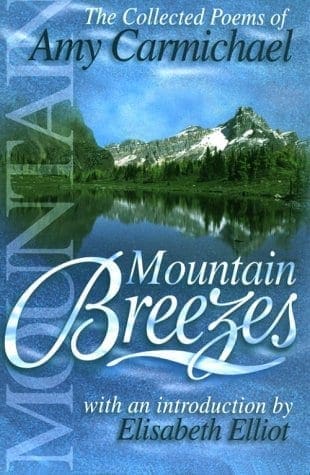
Mountain Breezes
Amy Carmichael
An anthology of most of the poetry of Amy Carmichael – 565 poems gathered from her published books. The untitled poems were given titles and all were arranged by the editors under seven major headings: worship, petition, surrender, ministry, wartime, encouragement and youthful thoughts.
Patient Poets: Illness from Inside Out
Marilyn Chandler Mcentyre
Readers are invited to consider what caregivers and medical professionals may learn from poetry by patients. It offers reflections on poetry as a particularly apt vehicle for articulating the often isolating experiences of pain, fatigue, changed life rhythms, altered self-understanding, embarrassment, resistance, and acceptance.





